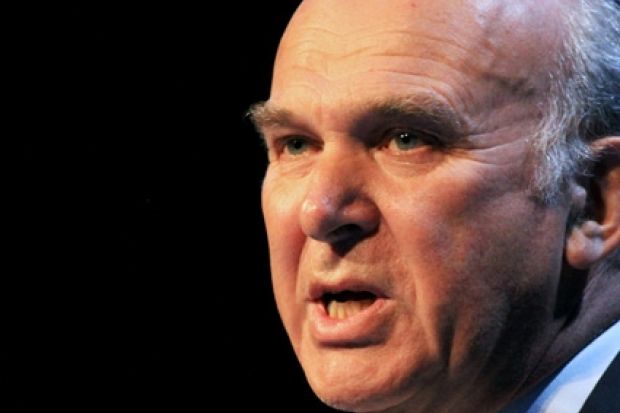Million+, which represents many post-1992 institutions, said middle-income earners would be hardest hit by the proposed changes thanks to a “triple whammy” of higher fee debt, real interest rates and a longer repayment period.
Its report – Fair, Progressive and Good Value? – concludes that in their current form the government’s plans will hit social mobility and participation as well as failing to offer a good deal for the taxpayer.
According to the analysis, carried out by consultancy firm London Economics, around 60 to 65 per cent of graduates would be worse off than under the current system.
It says a male graduate from a middle-income household with an earnings profile similar to that of a primary school teacher would pay as much as £25,000 extra for his degree if fees rise to £9,000 a year.
For women, plans to raise the threshold for repayments to £21,000 from £15,000 would mean that those entering the workforce at the age of 30 will pay less for their higher education than at present. However, they will also have outstanding fees debts of more than £21,000 at the age of 60.
Million+ has also released an analysis of the latest forecast from the Office for Budget Responsibility, which oversees the government’s finances, indicating that proposals to raise the fee cap could add £13 billion to public sector net debt by 2015-16.
The OBR report also suggests that higher tuition fees could push up inflation as measured by the Retail Price Index, the very indicator used to calculate interest on loans, a spokeswoman for Million+ said.
The analyses have been published as tension mount ahead of a Parliamentary vote – due in the next three weeks – on the government’s plans to raise the fee cap to £9,000.
Vince Cable, the Liberal Democrat business secretary, said on 30 November that he would be “happy” to abstain from the vote if his party’s MPs agreed to that course of action as a group.
However, he also told the BBC that his “personal instinct” was to back the proposals because he was a Cabinet minister and he felt the policy was “right”.
Meanwhile Nick Clegg, the deputy prime minister, yesterday tried to take some of the heat out of the situation by writing to National Union of Students president Aaron Porter.
In the letter he urges Mr Porter to remind his members that they would not face any up-front payments under the plans, and he warns him that the row between students and the government threatened to “sabotage” their shared aim of widening university participation.
Register to continue
Why register?
- Registration is free and only takes a moment
- Once registered, you can read 3 articles a month
- Sign up for our newsletter
Subscribe
Or subscribe for unlimited access to:
- Unlimited access to news, views, insights & reviews
- Digital editions
- Digital access to THE’s university and college rankings analysis
Already registered or a current subscriber? Login
